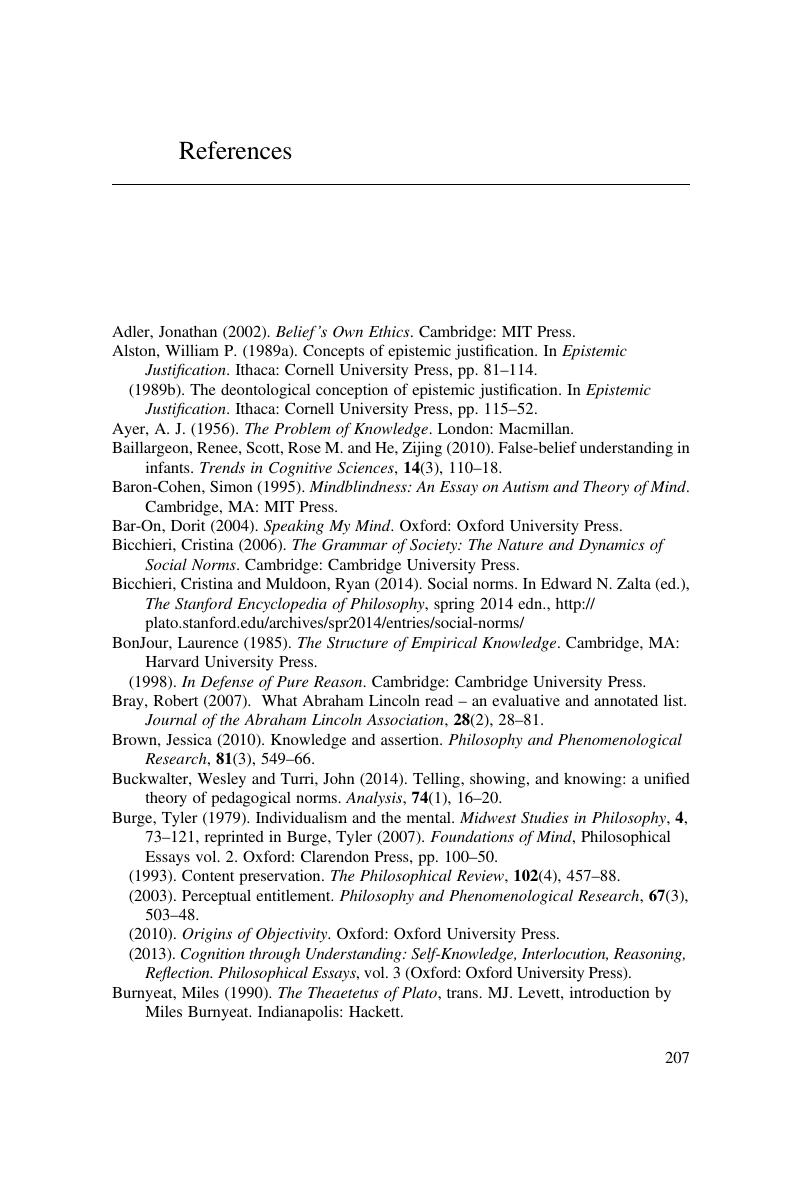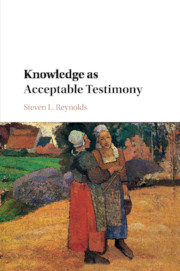Book contents
- Knowledge as Acceptable Testimony
- Knowledge as Acceptable Testimony
- Copyright page
- Contents
- Acknowledgments
- 1 Social Norms, Knowledge, and Philosophy
- 2 What Is Knowledge?
- 3 Developing a Concept of Knowledge
- 4 Is That Our Concept of Knowledge?
- 5 What Is Justified Belief?
- 6 Justified Belief Is the Appearance of Knowledge
- 7 Testimonial Knowledge and Social Norms
- 8 Knowledge from Testimony
- 9 Doxastic Voluntarism and Epistemic Evaluations
- 10 Why We Should Prefer Knowledge
- References
- Index
- References
References
Published online by Cambridge University Press: 05 July 2017
- Knowledge as Acceptable Testimony
- Knowledge as Acceptable Testimony
- Copyright page
- Contents
- Acknowledgments
- 1 Social Norms, Knowledge, and Philosophy
- 2 What Is Knowledge?
- 3 Developing a Concept of Knowledge
- 4 Is That Our Concept of Knowledge?
- 5 What Is Justified Belief?
- 6 Justified Belief Is the Appearance of Knowledge
- 7 Testimonial Knowledge and Social Norms
- 8 Knowledge from Testimony
- 9 Doxastic Voluntarism and Epistemic Evaluations
- 10 Why We Should Prefer Knowledge
- References
- Index
- References
Summary

Information
- Type
- Chapter
- Information
- Knowledge as Acceptable Testimony , pp. 207 - 213Publisher: Cambridge University PressPrint publication year: 2017
